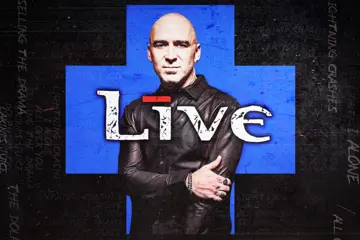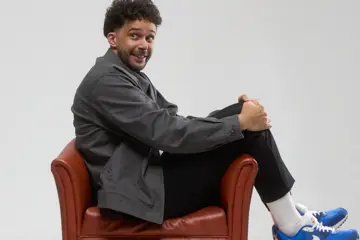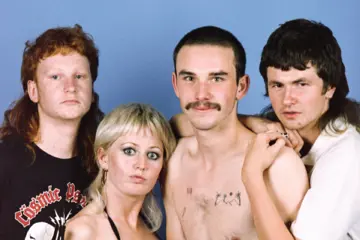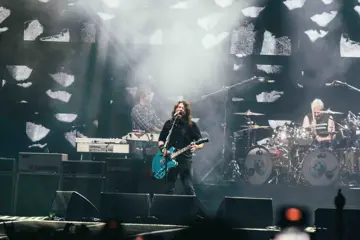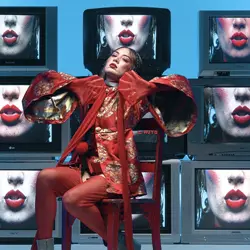 Jaguar Jonze
Jaguar JonzeContent warning: This feature contains discussion of sexual assault and rape. If you or someone you know is impacted by sexual assault, domestic or family violence, call 1800RESPECT on 1800 737 732 or visit 1800RESPECT.org.au.
Spectator Jonze is the moniker of Deena Lynch, a Brisbane-based artist born in Japan who takes inspiration from her mixed Taiwanese and Australian heritage and her interest in mental health and healing.
She has propagated a sizeable online following for her work, a series of digital portraits characterised by bold colours and linework, paired with deeply personal interviews. Jonze says the mission is to “make mental health a little bit more light-hearted and fun and visually appealing”.
Lynch explains, “I started to become passionate about wanting people to talk about mental health, but the really cool thing about the Spectator Jonze project is that each person shares with me and I can’t just take from them, I have to give back to them. And that’s helped me practice opening up... [By] allowing these people to properly connect with me as well, I’ve found it easier and easier to talk about my own mental health journey.”
Don't miss a beat with our FREE daily newsletter
Visual art is only a more recent avenue for Lynch, who is firstly a musician. As Jaguar Jonze, she is a self-described “oriental cowgirl howling at the rising sun” performing fragile, dark alternative-rock with a spaghetti western edge. Even more recently she has delved into photography as Dusky Jonze, piercing the veils of masculinity, femininity and insecurities around the body.
Lynch describes music as the doorway that allowed her to begin to have conversations with herself, and says visual art allowed her to have those conversations with other people.
“It’s all tied in with mental health, and I think that’s something I really feel passionate about because I spent my whole life feeling really isolated with it and unable to talk about it or even see someone about it, because it was almost shameful. So I guess my passion and drive is to unearth that,” she says.
When the opportunity to be part of the Brisbane Street Art Festival arose, Lynch was initially apprehensive. “When they asked me to do it firstly I said, 'No, that’s crazy, that’s insane, I’ve never worked beyond an A4 piece of paper!'” she exclaims.
"“It was that encouragement from them that made me jump over the hurdle of feeling scared that I’m not a street artist."
However the festival’s organisers insisted that her work would translate well to the format. “It was that encouragement from them that made me jump over the hurdle of feeling scared that I’m not a street artist, that I’m limited, to instead saying, ‘Cool, this is an amazing opportunity... This is my hometown, this is where I should experiment with that stuff.'
“That’s the cool thing as well, they’re extending beyond traditional street art and looking to different styles… It’s a different and exciting thing – it shows that it doesn’t have to be a particular kind of thing done by a set group of particular people. It’s just the same canvas as with any kind of art medium.”
The wall Lynch is transforming is located in Brisbane’s West End, the home to many of the first venues where she played as a musician, a “melting pot of different opportunities and memories” for the artist.
The piece is a self-portrait, with Lynch turning the lens back on herself, and her own journey, having grown as an artist since she began capturing other people’s likeness. This wasn’t the original plan, however. Weeks out from the festival, Lynch was sexually assaulted. The experience, Lynch says, unearthed past traumas and tested her sense of self-worth and self-respect, and ultimately led her to make some realisations that she feels are important to share in this very public piece of art – for herself and for others.
“Once I processed it I realised actually I don’t deserve this, I shouldn’t have to go through this and neither should anyone else. I’ve just grown my awareness of what I will and will not accept,” she says. “I think when you’ve been abused since you were a child those lines get blurred… It really took me until adulthood to realise I’m not a child anymore and I can say, ‘No,’ and I can say, ‘Fuck off,’ to these things and call it out and have way more love and respect for myself, and so should everyone else.”








